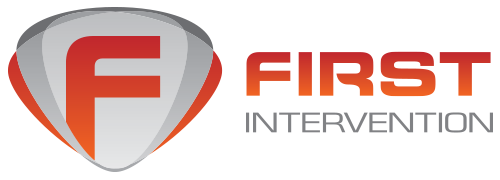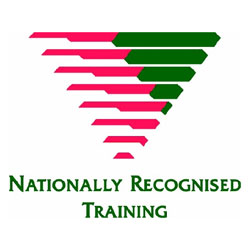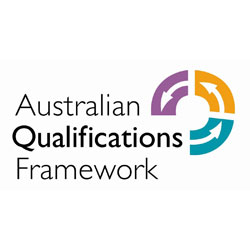
Once qualified, a range of opportunities exist within State/Territory ambulance authorities, non-emergency transport companies and private organisations who provide emergency and non-emergency patient care and transport services.
Our course is designed and delivered by Health Professionals who all have extensive industry experience within various public and private organisations throughout Australia.
We deliver critical theoretical knowledge components supported by comprehensive competency based practical skills and assessments. Our programs are continually reviewed to meet the changing needs of the industry and incorporate the latest developments in pre-hospital care, including alignment to current Australian Resuscitation Council Guidelines and emergency/life support ambulance practices.
This course is termed as ‘blended’ – which allows our students to manage lifestyle commitments around their studies. This means a more streamlined approach for the active learner and also compliments those who are transitioning from one profession to another.
If you would like to apply to enrol in the Diploma of Emergency Health Care qualification, email info@firstintervention.com.au. Alternatively you can Contact Us directly via the Enquire Now tab on our website.
Alternatively you can Contact Us directly – we are here to help.
Entry Requirements
To qualify for admission into this course, you will be required to demonstrate to the satisfaction of First Intervention that you:
- Have adequate Language, Literacy, Numeracy and Digital Literacy skills to progress through the course;
- Have adequate computer and digital literacy skills;
- Hold a current and unrestricted Australian State or Territory FULL Driver’s License;
- Have no known physical restrictions that will limit your ability to complete the course;
- Have or have access to the required technology (computer/laptop etc) to undertake this course
All applicants need to complete a Pre-Training interview (PTR) to discuss if the course is the most suitable and appropriate training option for them as part of their application to enrol in this course.
Course Delivery and Duration
This qualification is scheduled for a duration of 45 weeks not taking into account public holidays of RTO non-teaching periods.
Students may take between 12-16 months to complete this course
Students’ are required to attend:
-
- 1 day per week of classroom based training
- 11 days of practical based classes, scheduled over the duration of the course
- Course work: students complete a series of online quizzes, assignments and in-class activities during the course
- 160 hours of practical placement undertaking supervised activities in a pre-hospital setting
Units of Study in this Qualification
17 units of competency are required to complete this qualification, including 9 core units and 8 elective units.
Core Units
CHCDIV001
Work with diverse people
CHCLEG001
Work legally and ethically
HLTAAP002
Confirm physical health status
HLTINF006
Apply basic principles and practices of infection prevention and control
HLTOUT001
Implement safe access and egress
HLTOUT005
Assess and deliver standard clinical care
HLTOUT010
Communicate in complex situations to support health
HLTWHS002
Follow safe work practices for direct client care
HLTWHS006
Manage personal stressors in the work environment
Elective Units
BSBFLM303
Contribute to effective workplace relationships
BSBMED301
Interpret and apply medical terminology appropriately
CHCPRP003
Reflect on and improve own professional practice
HLTAID011
Provide first aid
HLTOUT004
Assess and deliver basic clinical care
HLTOUT006
Transport emergency patients
HLTOUT007
Transport non-emergency patients under operational conditions
HLTOUT008
Manage a scene
Qualification
On successful completion of this course a student is awarded the HLT51020 Diploma of Emergency Health Care qualification which is a nationally recognised qualification.
Students who do not complete all units may be eligible for a Statement of Attainment for any units they have been fully assessed in as competent.
Training Centres
25 Silicon Place, Tullamarine,
Victoria 3043 Australia
Career Opportunities
Potential job roles in this qualification are:
- Basic life support medic (BLS)
- Ambulance transport attendant
- Ambulance dispatcher
- Industrial medic
- Private company medic
- Defence force medic
- Ambulance support officer
Course Fees & VIC Government Funding
First Intervention has been approved under the 2023 Victorian Skills First Program to offer government subsidised training places to eligible individuals for this qualification.
Go to https://www.firstintervention.com.au/course-fees/ to see the course fees for this qualification.
There are 3 categories of fees and only 1 category can apply to a person.
- Eligible for Government funding with concession (only available to those self-identifying as Aboriginal and/or Torres Strait Islander)
- Eligible for Government funding
- Not-Eligible for Government funding
Pathways
Graduates of the HLT51020 Diploma of Emergency Health Care are able to use this qualification to gain employment in the private sector and overseas (in some cases). It can also be a pathway to university to study a paramedicine degree and become a registered Ambulance Paramedic in Australia.
Our Trainers
Our training is delivered by qualified health care professionals who excel in their field of expertise, ensuring that we are providing you with the highest standards of knowledge and skills that is supported with up-to-date and relevant industry practices and protocols.
Train with confidence – through our quality program that is both comprehensive and hands-on and focuses on developing your proficiency of skills and knowledge.



